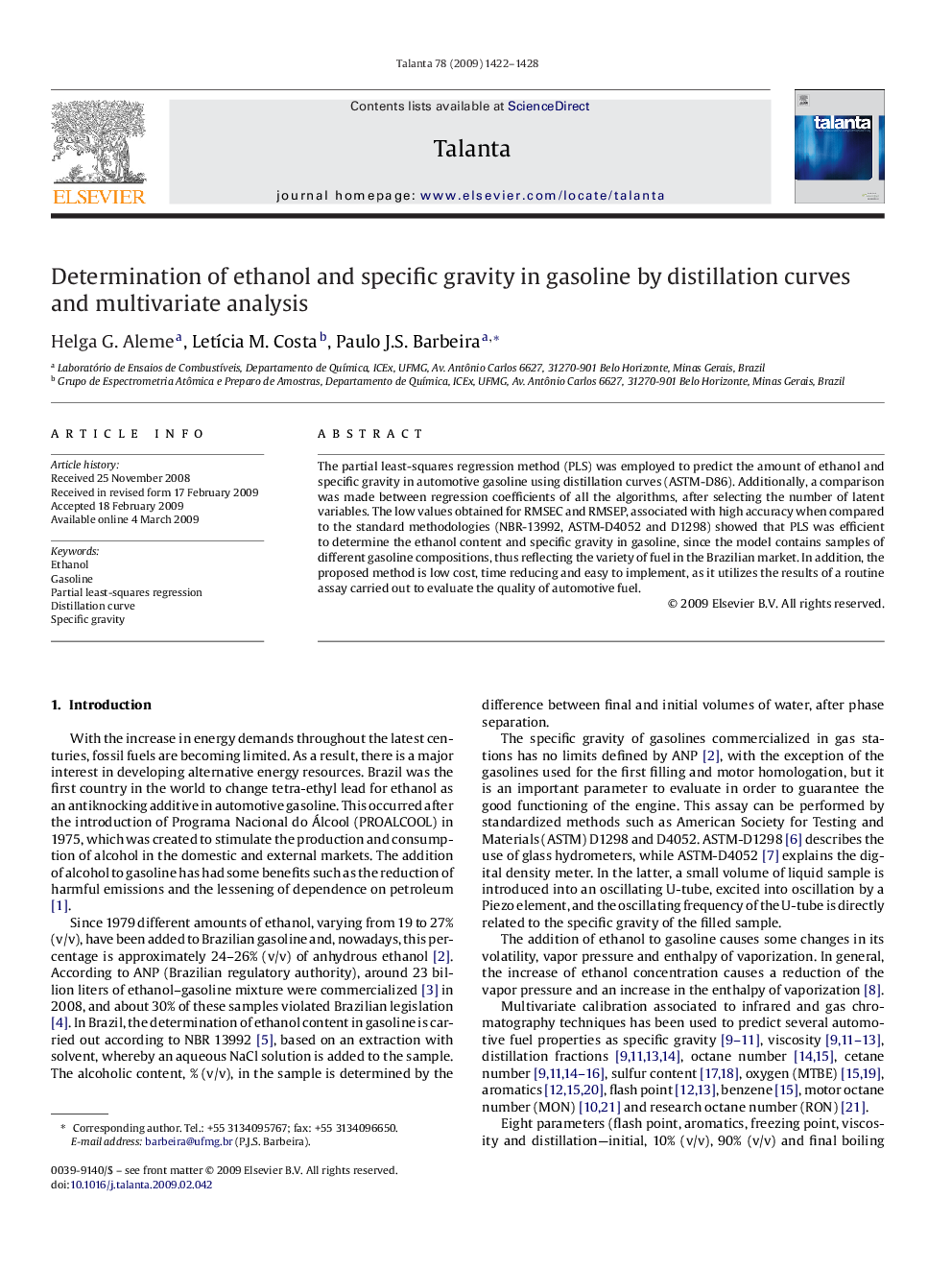| Article ID | Journal | Published Year | Pages | File Type |
|---|---|---|---|---|
| 1246893 | Talanta | 2009 | 7 Pages |
The partial least-squares regression method (PLS) was employed to predict the amount of ethanol and specific gravity in automotive gasoline using distillation curves (ASTM-D86). Additionally, a comparison was made between regression coefficients of all the algorithms, after selecting the number of latent variables. The low values obtained for RMSEC and RMSEP, associated with high accuracy when compared to the standard methodologies (NBR-13992, ASTM-D4052 and D1298) showed that PLS was efficient to determine the ethanol content and specific gravity in gasoline, since the model contains samples of different gasoline compositions, thus reflecting the variety of fuel in the Brazilian market. In addition, the proposed method is low cost, time reducing and easy to implement, as it utilizes the results of a routine assay carried out to evaluate the quality of automotive fuel.
